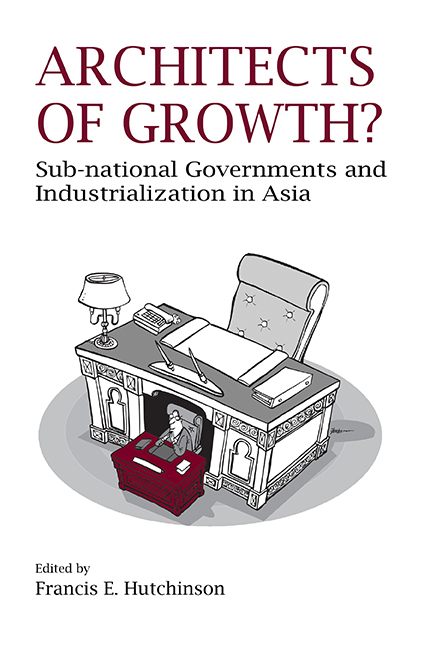Book contents
- Frontmatter
- Contents
- List of Tables
- List of Figures
- Foreword
- Preface and Acknowledgements
- Contributors
- Abbreviations
- I Introduction and Industry Overview
- II Cases from Industrializing Southeast Asia
- 3 A Relational View on Regional Development: The Case of the Electronics Sector in Cebu, Philippines
- 4 One Priority among Many? The State Government and Electronics Sector in Johor, Malaysia
- 5 Why Sub-national Governments in Thailand Are Not Creating Electronics Industry Clusters
- 6 Regional Economic Development and Perspectives for the Electronics Sector in Vietnam: The Case of Da Nang
- III Cases from China and India
- IV Cases from Industrialized Countries
- V Conclusion
- Index
5 - Why Sub-national Governments in Thailand Are Not Creating Electronics Industry Clusters
from II - Cases from Industrializing Southeast Asia
Published online by Cambridge University Press: 21 October 2015
- Frontmatter
- Contents
- List of Tables
- List of Figures
- Foreword
- Preface and Acknowledgements
- Contributors
- Abbreviations
- I Introduction and Industry Overview
- II Cases from Industrializing Southeast Asia
- 3 A Relational View on Regional Development: The Case of the Electronics Sector in Cebu, Philippines
- 4 One Priority among Many? The State Government and Electronics Sector in Johor, Malaysia
- 5 Why Sub-national Governments in Thailand Are Not Creating Electronics Industry Clusters
- 6 Regional Economic Development and Perspectives for the Electronics Sector in Vietnam: The Case of Da Nang
- III Cases from China and India
- IV Cases from Industrialized Countries
- V Conclusion
- Index
Summary
Introduction
At an intensifying pace over the past generation, Thailand's structure of production and, in particular, its export profile has been shaped significantly by a relatively small group of firms in the electronics industry. When foreign multinational assemblers began to produce new electronic products in Thailand 20 years ago, it was conventional to think of the challenges of catch-up industrialization, at least in part, in terms of a particular national economy finding means to implicate itself to its advantage within a global division of labour. While that perspective remains meaningful, today, as a result of the increasing “fragmentation” of production, we might better think of the goals for a national economy in terms of finding advantageous positions in multinational firms’ global (in the case of the electronics industry, this increasingly means East Asian) value chains.
The implications of the new global geography of production can be seen in the differential rates of economic growth within Thailand. In recent decades, traditional secondary urban centres such as Chiang Mai and Had Yai have grown relatively slowly. In contrast, its Eastern Seaboard provinces have come from nowhere in the 1980s to become Southeast Asia's most important concentration of mostly heavy industry manufacturing (Webster 2006; Unger 1998).
Thailand has been highly successful at embedding itself within the East Asian regional production strategies of major electronics producers. However, the potential positive dynamic effects, namely, the spillovers flowing from that success have been more modest than we might expect. We explore possible explanations for this mixed record below and point to indicators that some Thai state agencies are becoming more successful in supporting the electronics industry than in the past.
What are the means available to political jurisdictions to attract the attention and, ultimately, commitments from the major firms that define the geographic contours of the different segments of the global electronics industry?
These means include the conventional ones of maintaining stable macroeconomic conditions and providing a favourable business climate. Also important, of course, is the quality of physical infrastructure as well as the cost and skills of the labour force. In addition to these more straightforward factors that foreign firms weigh in deciding where to establish production facilities, there are variables that are specific to particular industries engaged in cross-border fragmented production.
- Type
- Chapter
- Information
- Architects of Growth?Sub-national Governments and Industrialization in Asia, pp. 121 - 148Publisher: ISEAS–Yusof Ishak InstitutePrint publication year: 2013



